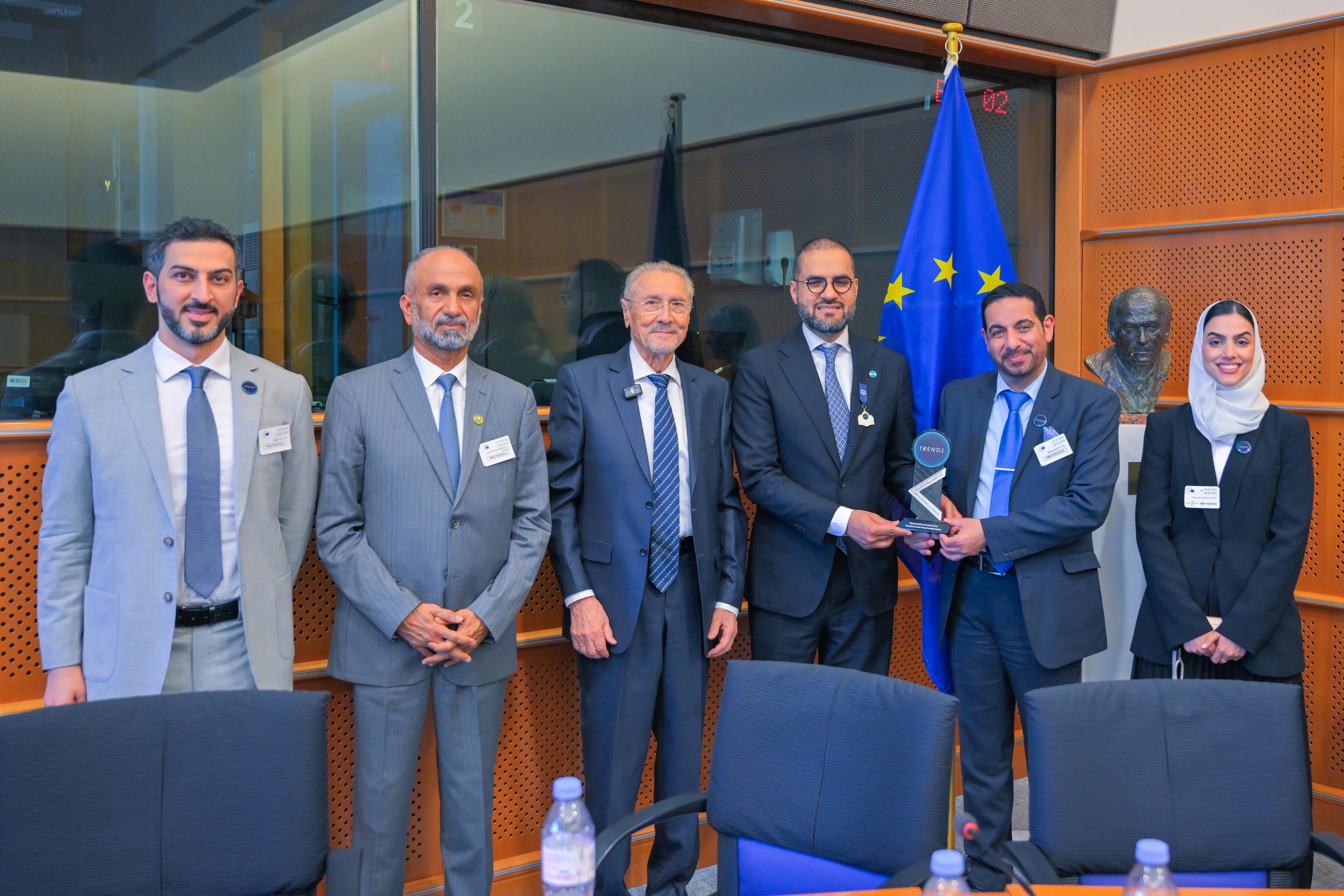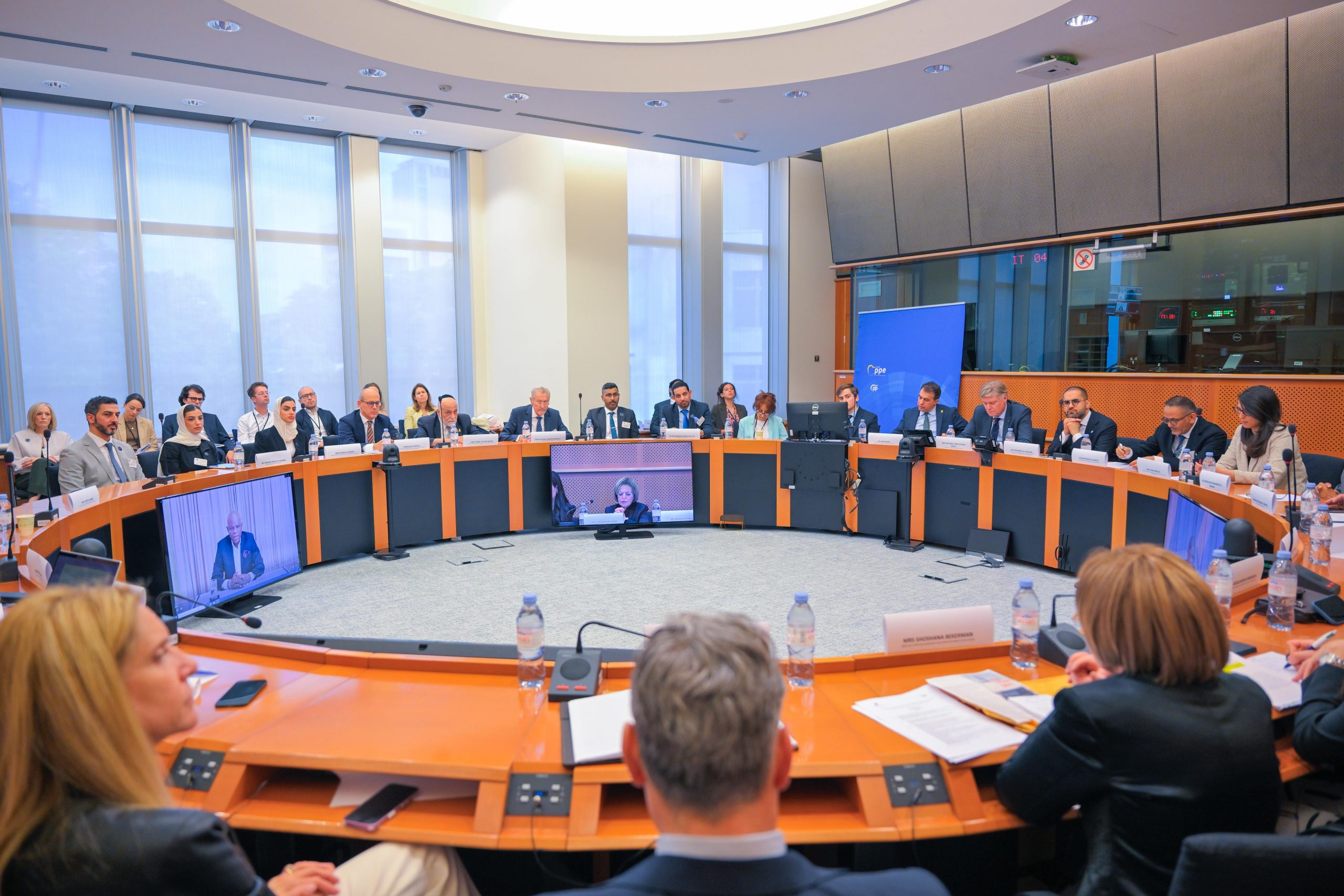Dr. Mohammed Al-Ali:
- Instilling values of tolerance and peace in young people is one of the best and most effective strategies to combat extremism
- Reforming educational curricula is necessary to purify them of any ideas that incite violence and hatred
- The UAE has institutionalized tolerance through supportive legislation and clear policies
TRENDS Research & Advisory participate a roundtable titled “Strategies to Combat Radicalism in the Middle East and around the Globe through Education for Tolerance and a Culture of Peace.” The event was organized by the Inter-Parliamentary Coalition for Global Ethics, the European Parliament, and MEP Antonio López, at the European Parliament headquarters in Brussels. It was attended by an elite group of parliamentarians, experts, academics, and specialists, marking the conclusion of TRENDS’ research tour in Belgium.
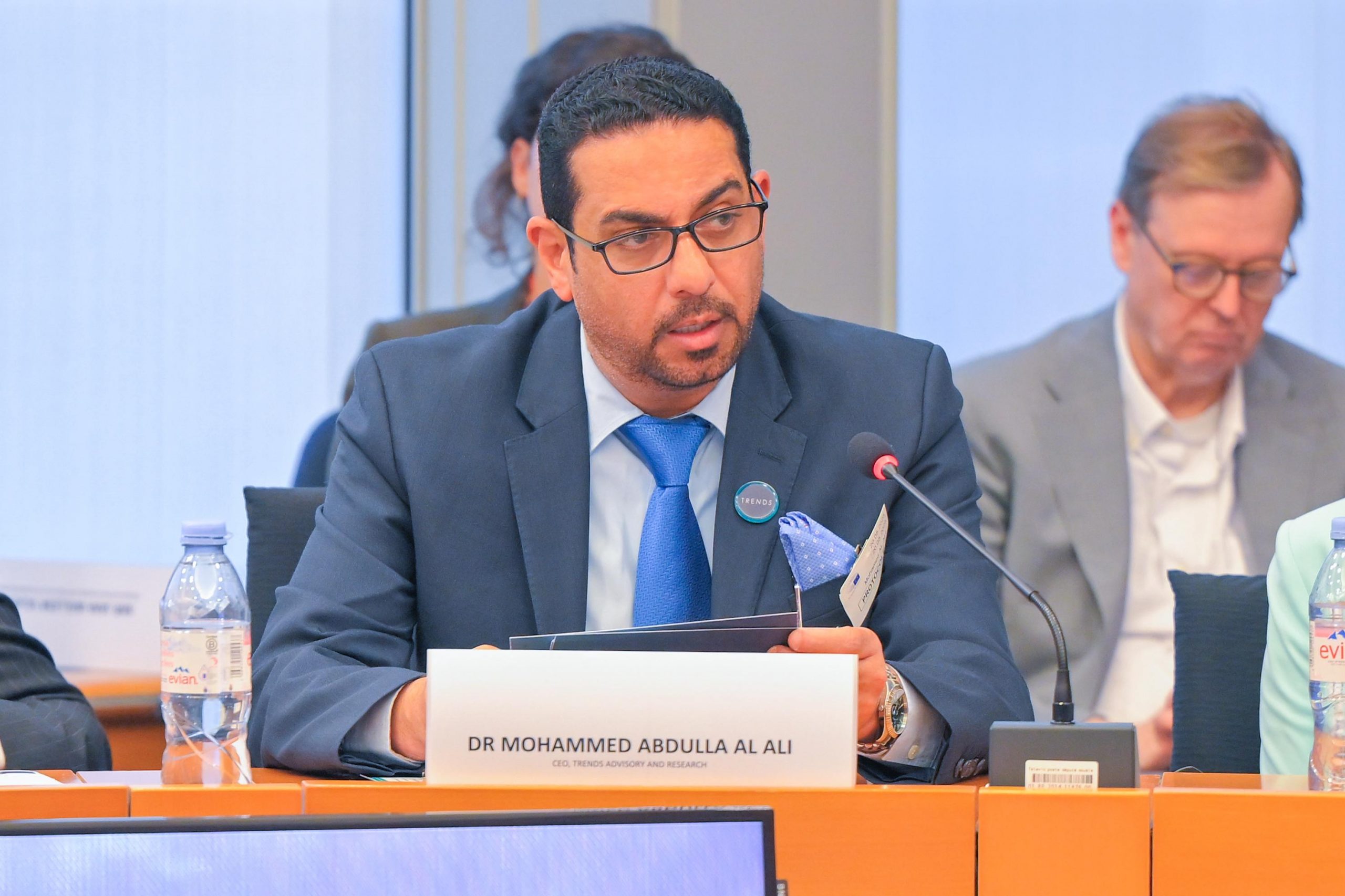
The Spread of Extremist Ideologies
Dr. Mohammed Abdullah Al-Ali, CEO of TRENDS Research & Advisory, said this roundtable came at the right time, given the global spread of extremist ideologies, whether under religious, populist, or far-right banners, and their associated racism, violence, and terrorism.
He stressed that the most effective strategy to combat extremist ideas and ideologies is to move away from elitist approaches and focus instead on the institutions of socialization, starting with the family and extending to educational, social, and religious institutions, as well as both traditional and new media. These institutions have enormous potential to instill the ideas and values of tolerance and peace in the hearts of children and youth, thereby preventing extremist ideas from infiltrating their minds.
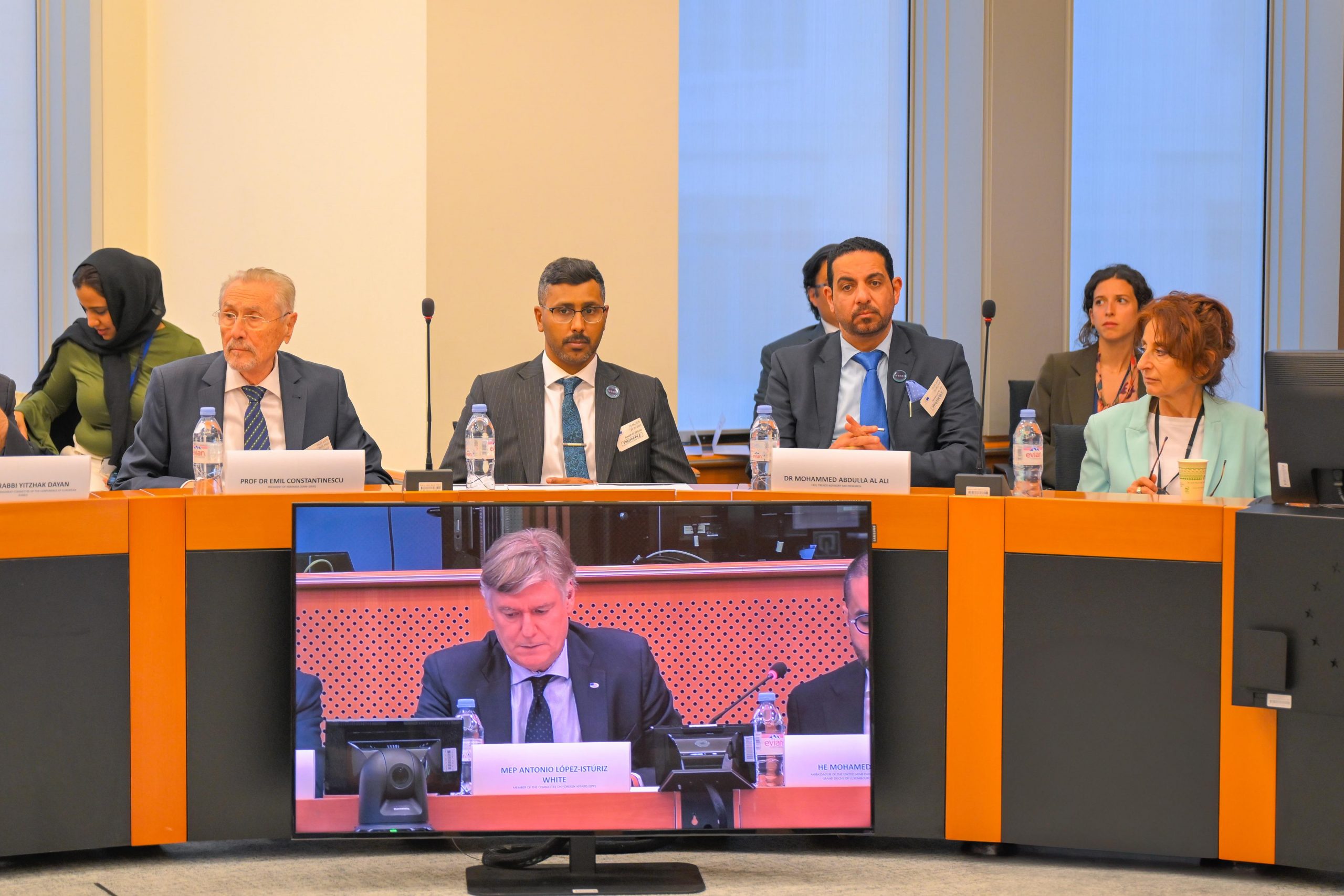
Institutionalizing Tolerance
Dr. Al-Ali noted that educational institutions, in particular, bear a great responsibility in consolidating the values and culture of tolerance and peace, especially the values of accepting others and constructive dialogue. This requires developing educational curricula and purifying them of content that incites extremism or hatred. This, in turn, requires active government intervention to confront those who spread extremist ideologies, most notably, the Muslim Brotherhood, which is the umbrella under which most extremist movements have emerged.
Dr. Al-Ali shed light on the Emirati model of human tolerance within a culturally diverse society composed of people from over 200 nationalities. He explained that the UAE has institutionalized tolerance through supportive legislation, clear policies and decisions, and the establishment of dedicated institutions, foremost of which is the Ministry of Tolerance and Coexistence. It has also reformed its educational curricula by introducing “Moral Education” as a mandatory subject in all schools, further strengthening the UAE’s model as a global example of tolerance.
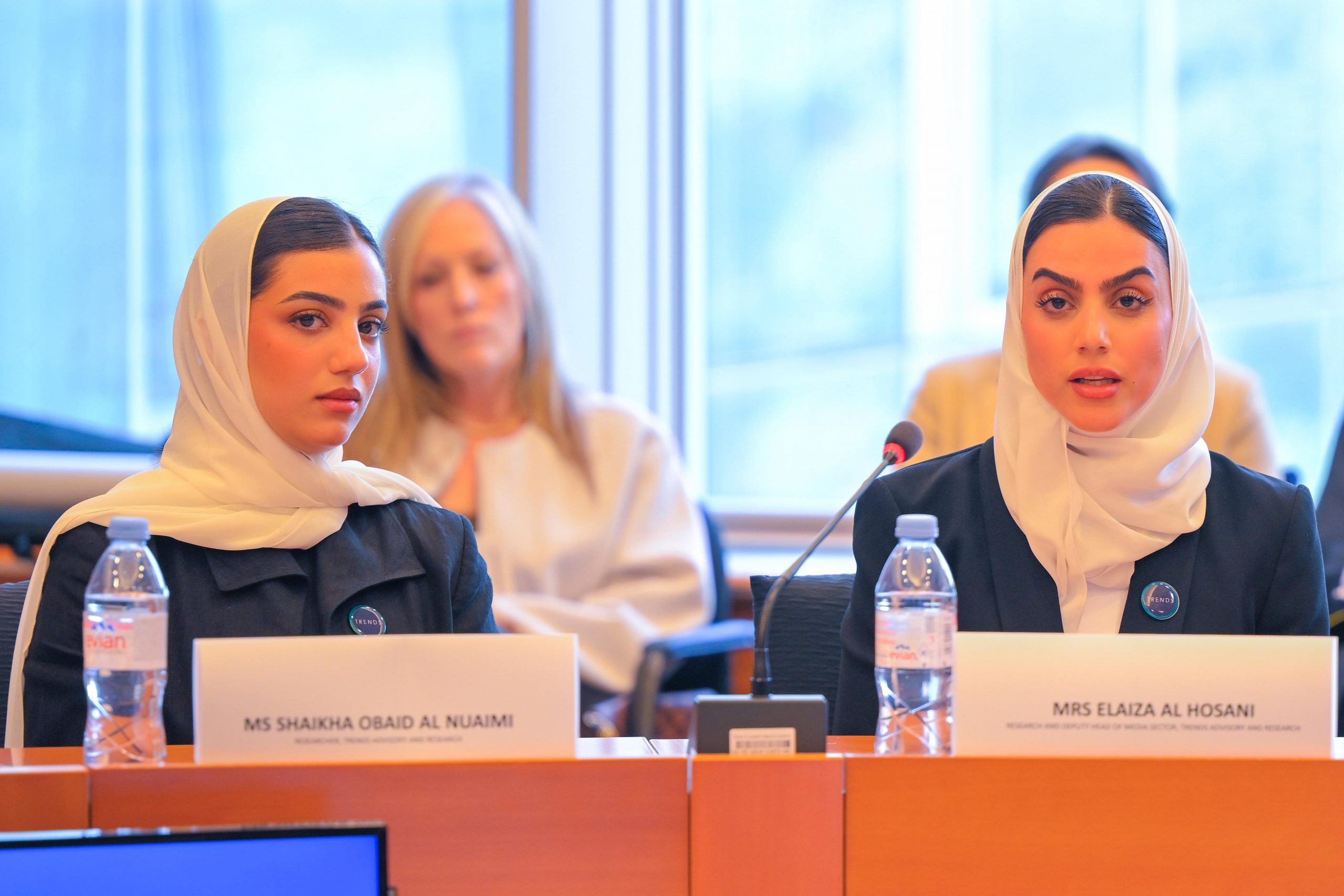
A Nation of Moderation and the Future
In her remarks during the roundtable, Alyazia Al-Hosani, researcher and Deputy Head of the Media Sector at TRENDS, said that the UAE is a young country in age, but powerful in action. It is a country founded on moderation, tolerance, and forward-looking aspirations, reflecting justice and balance in every aspect of life. She added that the UAE is a country deeply rooted in coexistence, where respect for others is not just a principle but an embedded value in every Emirati.
Al-Hosani highlighted that in 2016, the UAE established the Ministry of Tolerance and Coexistence, becoming the first country in the world to create a dedicated government body to promote inclusion and mutual respect across communities. She also pointed to the opening of the Abrahamic Family House in Abu Dhabi, which is religious and cultural complex that contains a mosque, a church, and a synagogue, serving as a beacon and symbol of tolerance and coexistence.
She explained that signing of the Abraham Accords, which were a natural result of the UAE’s commitment to tolerance, moderation, peace, and acceptance of others, is not merely about formal signing of an agreement. She said that anyone can sign an agreement, but for it to succeed, peoples must meet and interact with one another. Al-Hosani shared her experience as the first Emirati researcher to train at the “Moshe Dayan” Center, where she had the opportunity to meet with others, engage with communities, and feel the true meaning of Emirati tolerance and coexistence.
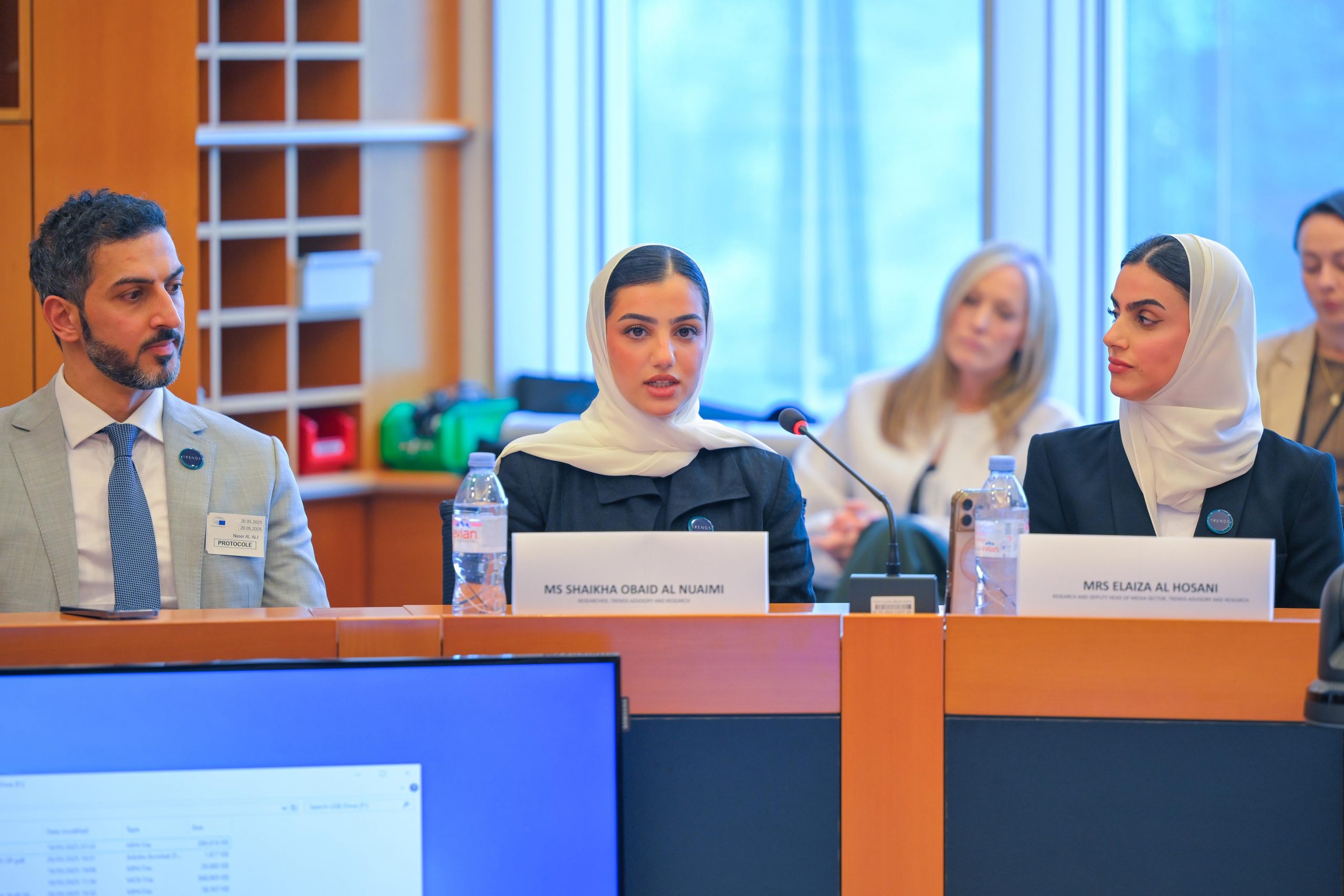
Education for Peace
Sheikha Al-Nuaimi, a researcher at TRENDS, spoke during the roundtable about the vital role of education in promoting tolerance and peace. She emphasized that education is not just the transmission of facts, but rather the shaping of minds that value empathy, mutual respect, and human dignity. By exploring different cultures and beliefs, students develop their thinking and gain strength against extremism.
She added that the UAE has made education for peace and tolerance a national priority, where students are taught moral education, which instills ethics, citizenship, and human fraternity. This goes beyond the traditional curricula, as teachers follow a national code of conduct designed to promote positive values and protect students from harmful ideologies.
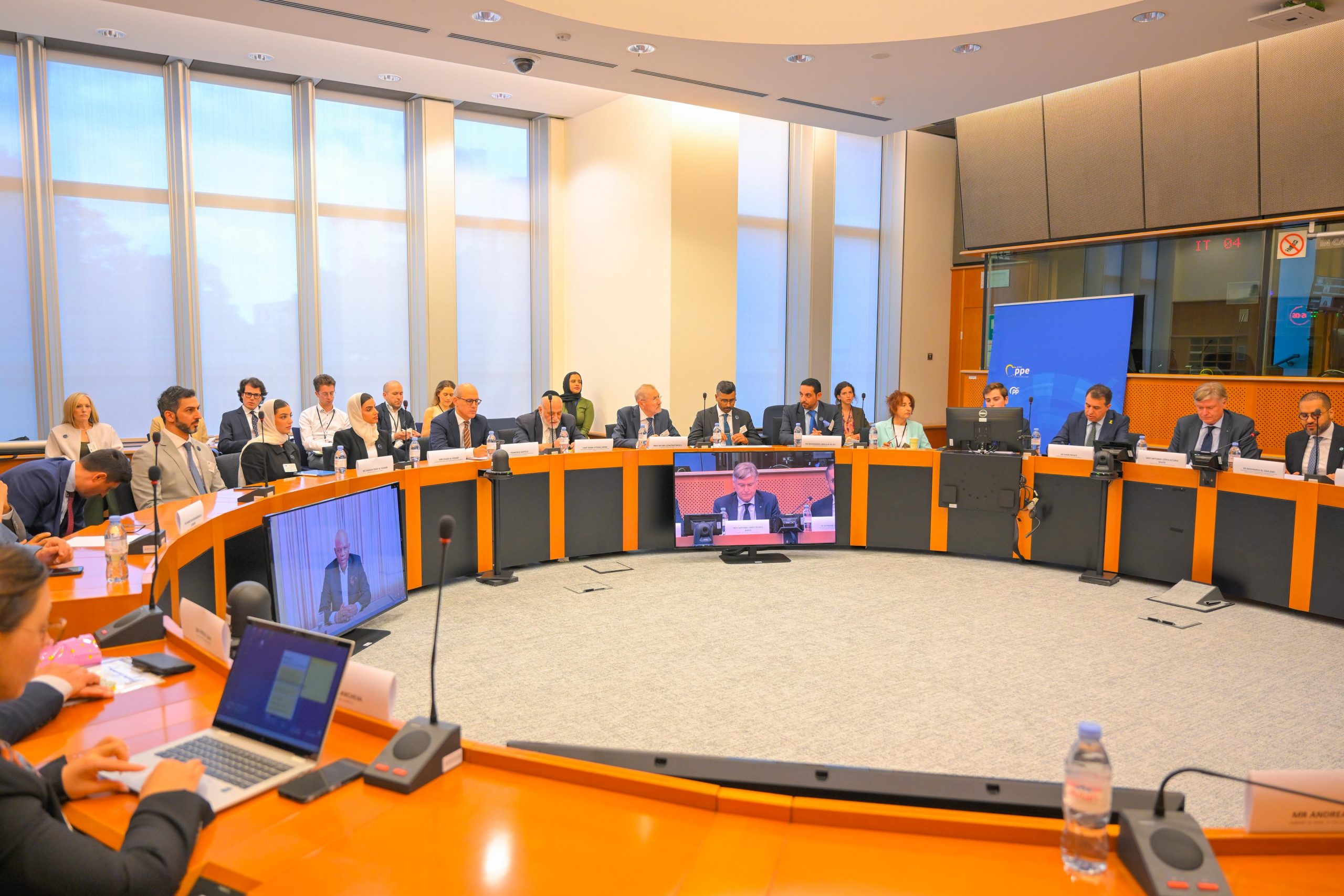
Al-Nuaimi also noted that the UAE supports youth engagement through youth centers, discussion forums, and dialogue sessions that empower young people to lead intercultural and interreligious dialogue. She emphasized that when education is purposeful and values-driven, it can unify communities and protect future generations from hate and division. She called for continued investment in education, not only as a path to knowledge, but as a foundation for peace.
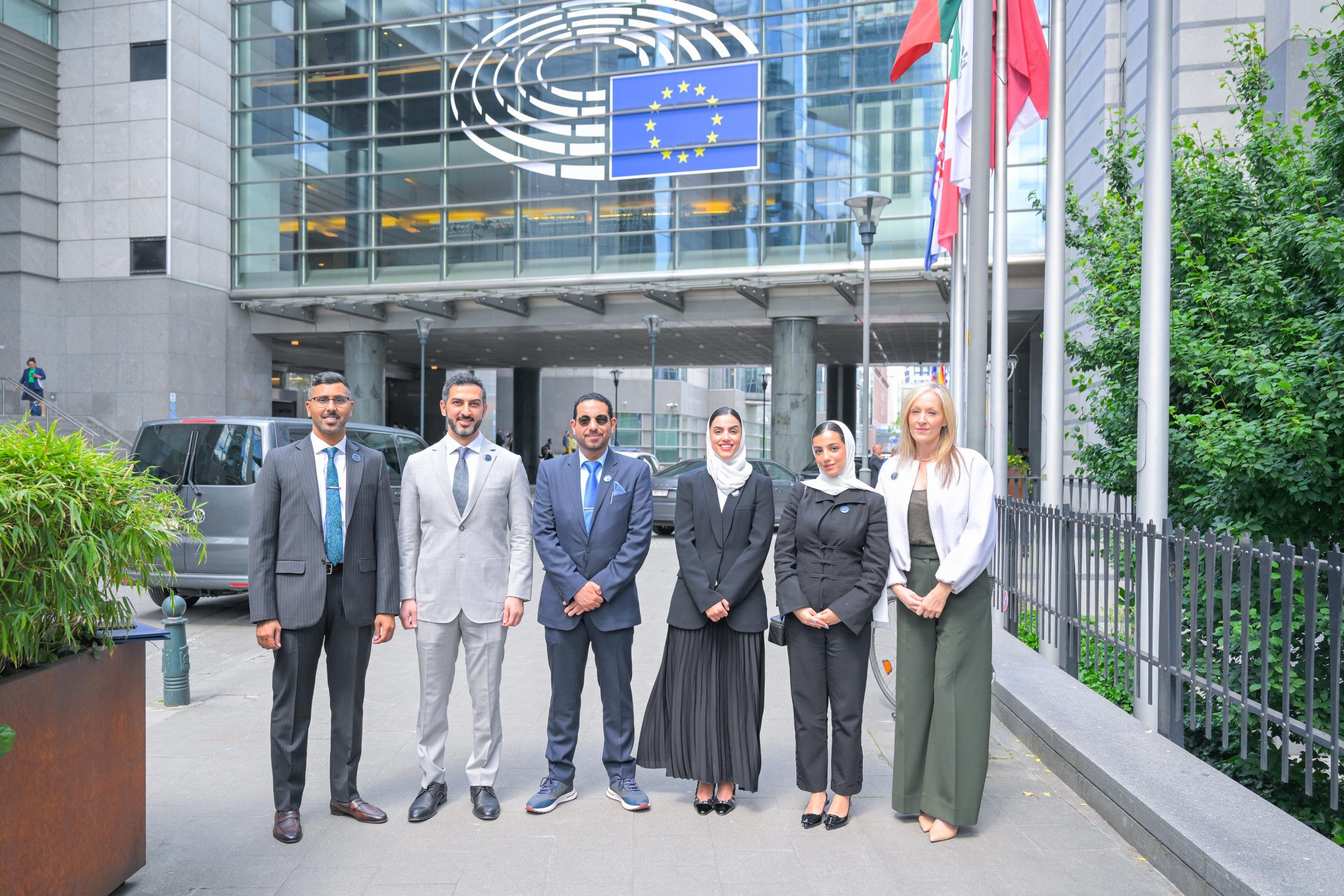
In the same context, the TRENDS team met with H.E. Ahmed bin Mohamed Al-Jarwan, President of the Global Council for Tolerance and Peace, and H.E. Mohamed Al Sahlawi, UAE Ambassador to the Kingdom of Belgium, the European Union, and the Grand Duchy of Luxembourg. The meeting took place on the sidelines of the roundtable held at the European Parliament in Brussels.
